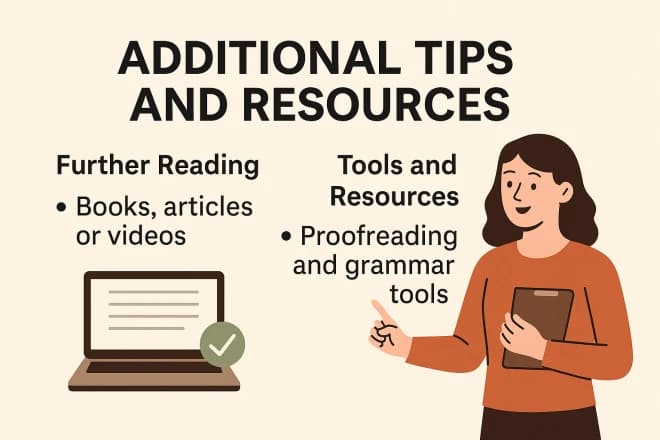Unlock Insights: Find the Answers You Seek on Our Blog
Exploring ‘Broken Chain’ by Ron Tranmer: Grief, Healing, and Creative Expression
By Evelyn Sterling
What is the ‘Broken Chain’ Poem?
“The Broken Chain” is a widely cherished bereavement poem written by Ron Tranmer. It utilizes the powerful metaphor of a family chain to represent the deep bond between relatives. The poem acknowledges the heartbreak of a loved one’s death as a “break” in the chain, but offers a message of hope and faith: as family members pass away one by one, they will be reunited in the afterlife, linking the chain together again. Due to its comforting message, it is a popular choice for funeral readings, eulogies, and sympathy cards.
In this post, we provide the full text of the poem, analyze its deep spiritual meaning, and explore how it helps navigate the journey of grief.
The Full Text of “Broken Chain” by Ron Tranmer
We little knew that morning that
God was going to call your name.
In life we loved you dearly,
In death we do the same.
It broke our hearts to lose you,
You did not go alone;
For part of us went with you,
The day God called you home.
You left us peaceful memories,
Your love is still our guide,
And though we cannot see you,
You are always at our side.
Our family chain is broken,
And nothing seems the same;
But as God calls us one by one,
The chain will link again.
Meaning & Analysis: Why This Poem Resonates
“Broken Chain” is more than just a poem; it is a guide through the stages of grief. Its popularity in eulogies stems from its ability to articulate what many feel but cannot say.
The Metaphor of the “Broken Chain”
Tranmer uses the powerful imagery of a “family chain” to symbolize the lineage and emotional bonds that hold a family together. When a loved one passes, the chain feels physically broken, representing the disruption of the family unit. However, the poem transforms this image from one of permanent destruction to temporary separation.

Themes of Loss and Spiritual Reunion
The poem navigates the journey of mourning in three distinct stages:
- The Shock of Loss: The opening stanza (“We little knew that morning”) captures the sudden, unpredictable nature of death.
- The Enduring Bond: It transitions to the idea that love does not die with the body (“You did not go alone”).
- The Promise of Hope: Finally, it offers the Christian perspective of an afterlife (“The chain will link again”). This frames death not as a final goodbye, but as a waiting period until the family is reunited one by one.
Structure and Style
Written in simple quatrains (four-line stanzas) with an AABB rhyme scheme, the poem has a gentle, rhythmic cadence. This simplicity is intentional; in times of deep grief, complex poetry can be overwhelming. Tranmer’s straightforward, empathetic language makes the message of hope accessible to everyone, offering immediate comfort without the need for decoding complex metaphors.
About the Author: Ron Tranmer
While Ron Tranmer may not be a household name in academic literature, he is a giant in the world of bereavement poetry. His work focuses heavily on faith, family, and the spiritual aspects of life and death. Unlike poets who write for critique, Tranmer writes for comfort. His ability to speak on the enduring nature of familial ties has made his work a staple in funeral services across the English-speaking world.
Finding Support During Times of Grief
While poetry like “The Broken Chain” can offer spiritual comfort, navigating the journey of grief is often difficult to do alone. If you or a loved one are struggling with the pain of separation, reliable professional resources are available to help you find healing.
We recommend exploring these trusted organizations for guidance and support:
- National Hospice and Palliative Care Organization (NHPCO):
Offers extensive resources on bereavement and finding professional care providers. - GriefShare:
A worldwide network providing local support groups and seminars to help you recover from loss. - American Psychological Association (Grief Resources):
Provides expert psychological strategies and articles on coping with the death of a loved one. - The Compassionate Friends:
Dedicated specifically to supporting families after the loss of a child.
For obituary searches or to view online memorials, Legacy.com remains a trusted global platform.
Inspired to Write a Tribute?
Ron Tranmer captured the universal feeling of loss perfectly. But sometimes, you want to express a specific memory or a unique bond you shared with the departed.
Writing a eulogy or a memorial poem can be incredibly difficult when you are grieving. If you are struggling to find the right words, technology can help you get started.
Create a Personal Memorial Poem in Seconds
You don’t need to be a poet to honor your loved one. With our AI Poem Generator, you can create a heartfelt tribute based on your real memories.
How to Write a Funeral Poem with AI:
- Enter Your Theme: Type something specific like “A poem for my grandfather who loved fishing and telling stories.”
- Select the Tone: Choose “Solemn”, “Hopeful”, or “Loving”.
- Generate: Let the AI draft verses that you can then edit and personalize for the service.
Whether you use the classic words of “Broken Chain” or write something new, the most important thing is that the words honor the love you shared.
Last Updated: 2025/11/24
AI Tools Categories
Browse all AI tools by category
All AI Tools
229Amazon
5AI Writing Generator
85Article & Content Writing
35Branding & Identity
54Content Generation
170Creative Ideas
32Educational Resources
34E-commerce
14Etsy
6Events & Celebrations
13Facebook
6Gaming & Fun
5Instagram
3Lifestyle & Personal
8LinkedIn
6Marketing & SEO
40Poem & Lyrics Writing
19Professional Documents
31Social Media
44Story & Book Writing
49Text Effects
14TikTok
7Twitter
3Writing Enhancement
36YouTube
11
Highly rated and most popular AI tools curated by our experts
Recently added AI tools that are gaining traction
- AI Post Generator

- AI Bullet Point Generator

- AI Discussion Post Generator

- AI 2 Weeks Notice Letter Generator

- AI Content Creation Ideas Generator

- AI Radio Ad Script Generator

- AI Podcast Script Generator

- AI Resume Objective Generator

- AI Resume Headline Generator

- AI Password Generator

- AI Snapchat Caption Generator

- AI Snapchat Username Generator

- AI Pinterest Board Name Generator

- AI LinkedIn Experience Description Generator

- AI Twitter Hashtag Generator

- AI YouTube Short Idea Generator

we prioritize displaying the latest content closely related to the current blog post.








